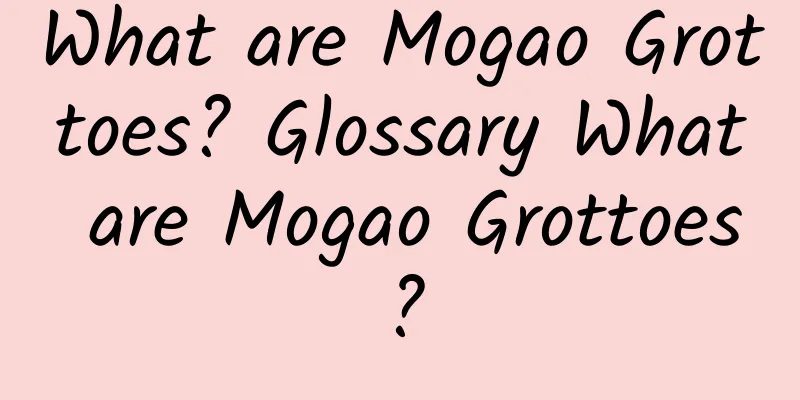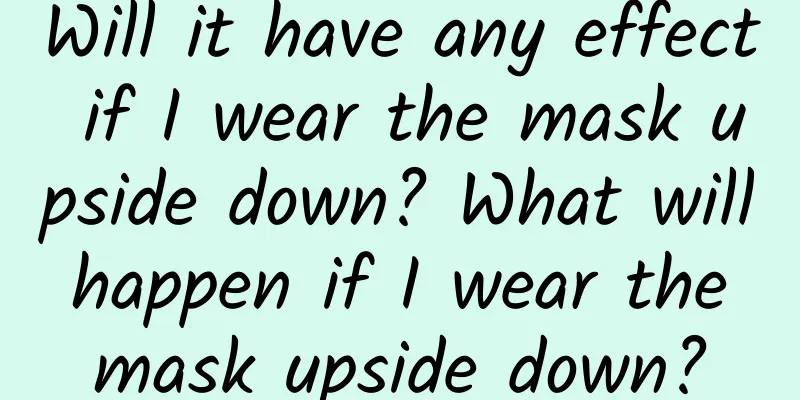What are Mogao Grottoes? Glossary What are Mogao Grottoes?

|
If you can go traveling, Mogao Grottoes is the first choice. Mogao Grottoes is a large cave temple that integrates painting, sculpture and architectural art, with murals as the main feature and statues as the supplement. Its caves mainly include Zen caves, central tower column caves, hall caves, central Buddha altar caves, four wall three niche caves, large statue caves, Nirvana caves, etc. The sizes of each cave vary greatly. There were originally wooden temples outside the caves, and they were connected by corridors and plank roads, but most of them no longer exist. So what are Mogao Grottoes? Glossary What is Mogao Grottoes? Let's take a look at the introduction of Encyclopedia Knowledge Network below! Contents of this article 1. What is Mogao Grottoes? 2. What is Mogao Grottoes? 3. Why the murals in the Mogao Grottoes in Dunhuang have not faded for thousands of years 4. What did Taoist Wang do to the Mogao Grottoes in Dunhuang? 1What is Mogao GrottoesMogao Grottoes, commonly known as the Thousand Buddha Caves, is known as the most valuable cultural discovery of the 20th century and the "Louvre of the East". It is located in Dunhuang at the western end of the Hexi Corridor and is famous for its exquisite murals and statues. It was first built in the Former Qin period of the Sixteen Kingdoms, and has been built up in the Sixteen Kingdoms, Northern Dynasties, Sui, Tang, Five Dynasties, Western Xia, Yuan and other dynasties, forming a huge scale. There are currently 735 caves, 40,000 to 50,000 square meters of murals, and 2,415 clay colored sculptures. It is the largest and most content-rich Buddhist art holy place in the world. The Sutra Cave discovered in modern times contains more than 50,000 ancient cultural relics, from which the discipline of Dunhuang Studies, which specializes in the study of the Sutra Cave classics and Dunhuang art, has been derived. In 1961, it was announced as one of the first batch of national key cultural relics protection units, and in 1987, it was listed as a world cultural heritage. 2What is Mogao Grottoes?This can be answered from the following aspects: 1. Location. Mogao Grottoes are located 25 kilometers southeast of Dunhuang City, and are carved on the cliffs at the eastern foot of Mingsha Mountain. It is about 1,600 meters long from north to south, with five layers arranged up and down, high and low in a staggered manner, and lined up in rows, shaped like a beehive pigeon house, which is extremely spectacular. 2. Status. It is one of the four famous grottoes in my country and the largest and best-preserved treasure house of Buddhist art in the world. It is also a world-famous Buddhist art center. It was listed as a World Cultural Heritage by UNESCO in December 1987. 3. Features. Mogao Grottoes is an art palace that combines ancient architecture, sculptures and murals, and is especially famous for its colorful murals. Looking around the caves and the ceiling, there are paintings of Buddhas, flying celestial beings, musicians, fairies, etc. There are paintings of Buddhist stories, sutras and Buddhist historical sites, as well as paintings of gods and monsters and portraits of donors, and all kinds of exquisite decorative patterns. Why the murals in the Mogao Grottoes in Dunhuang have not faded for thousands of years1. The colors of murals were painted with mineral pigments in the earliest period, so they do not change color after thousands of years. 2. The colors of the murals we see have already changed. Non-mineral pigments oxidize and change after coming into contact with carbon dioxide and water vapor. 3. Dunhuang is located in a dry desert area with little water, so the colors of the murals are well preserved. The falling and discoloration of the murals is an irreversible fact, and the protection work done by the Dunhuang Research Institute is only to slow down the falling and discoloration of the murals. The prohibition of taking photos and the restriction of the number of people entering the caves are all for the purpose of protecting the murals and preserving them for a longer time. 4What did Taoist Wang do to the Mogao Grottoes in Dunhuang?Taoist Wang: According to historical records, he made great contributions to Mogao Grottoes. He spent his entire life, using the money raised from begging everywhere, to repair the abandoned Mogao Grottoes over the years and protect the Mogao Grottoes Sutra Caves that he discovered. However, he was deceived by Stein and others and sold a large number of scriptures and cultural relics to them, which caused a large number of precious cultural relics to be looted, thus earning him a bad reputation. Without government support, he devoted himself to restoring the Mogao Grottoes. In order to make a living and to have more money to protect the Mogao Grottoes, |
Recommend
Women sweat during menopause, do you know what to do?
When women reach menopause, due to various reason...
Is cyanobacteria a prokaryotic organism? What is cyanobacteria?
Cyanobacteria, also known as blue-green algae, ar...
How can I check for uterine cold?
Some friends often have infertility, especially m...
Why does the lactation consultant reduce the amount of milk?
Many women will secrete milk from their nipples i...
Can soaking your feet in hot water relieve menstrual cramps?
Many female friends experience pain and discomfor...
Kingsley Andovit tablets instructions
One tablet of Kingsley An Multivitamin contains: ...
What are the symptoms of pelvic inflammatory disease?
Pelvic inflammatory disease is a common gynecolog...
What is the standard size of a menstrual follicle?
Most people do not understand the physiological c...
Will a woman's uterus sag during menstruation?
Generally speaking, every woman will have menstru...
Small blisters at the vaginal opening
If you find small blisters growing inside your va...
What is Lü Bu's mount in Romance of the Three Kingdoms? Who plays Lü Bu in Romance of the Three Kingdoms?
The Romance of the Three Kingdoms can be roughly ...
Does tinnitus occur during menopause?
Tinnitus is a common disease. Menopausal women al...
Effect of Chinese medicine on clearing fallopian tubes
Traditional Chinese medicine plays a relatively l...
What skin care products do middle-aged women use?
Skin care products are a necessary weapon for eve...
The story of an 85-year-old mother taking care of her 65-year-old daughter is heart-wrenching. Can Alzheimer's disease be prevented?
In addition to the Mid-Autumn Festival when famil...









